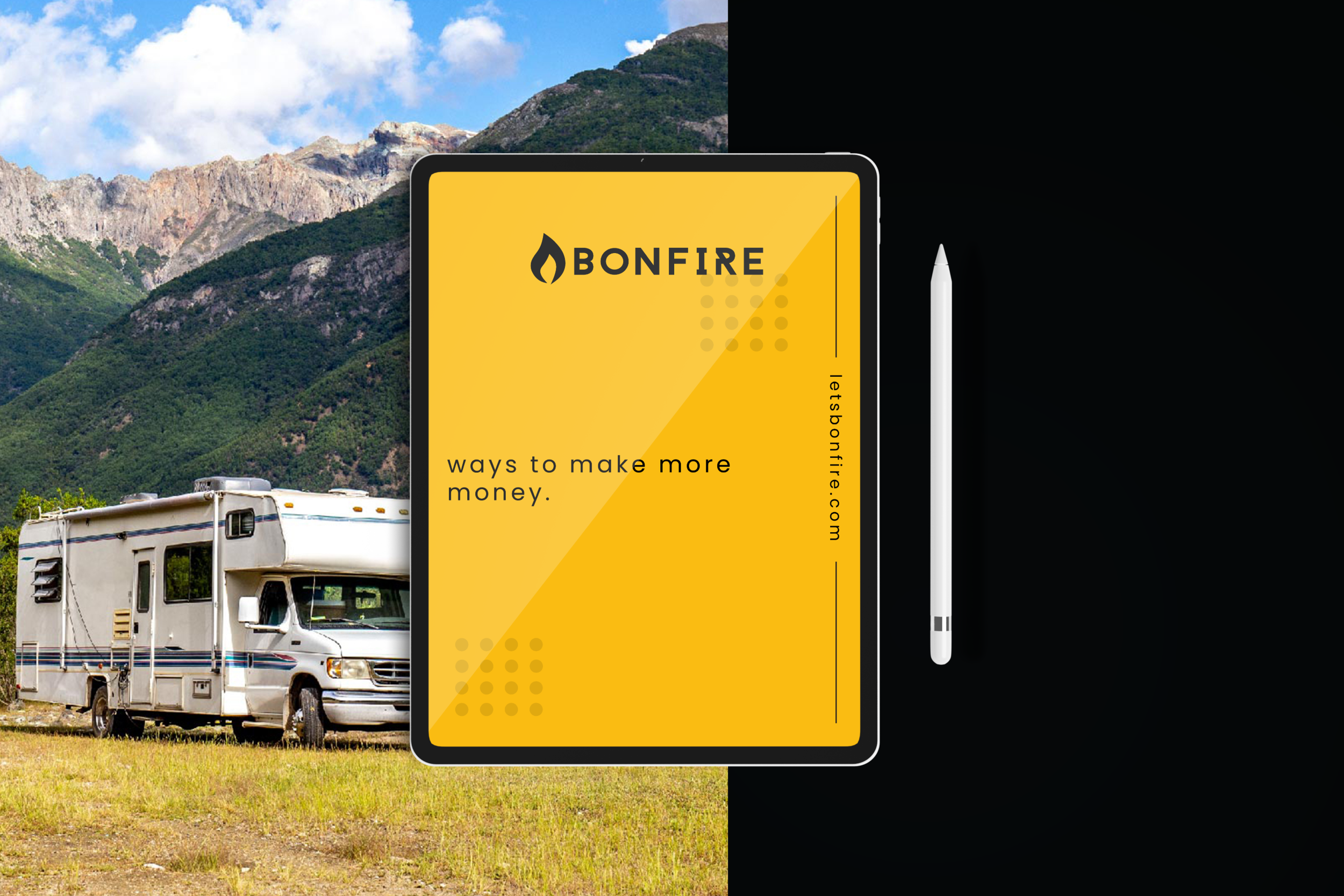One question we are often asked by campground owners is if we have a marketplace set up where customers can go to look for campgrounds to book. For those who don't know what a marketplace is, it is a website that aggregates campgrounds so potential customers can go to one place to book instead of having to search multiple sites. Good examples of marketplaces are AirBnb and Travelocity. As with anything in life, there are pros and cons to marketplaces. For Bonfire, when making the decision to create a marketplace, the cons outweighed the pros. In this blog, we will take a look at the good and the bad of RV Park and campground marketplaces.
If you are still unclear what a marketplace is, check out Campspot. As you can see, they aggregate all campgrounds in one place so customers can easily find what they are looking for. One plus is that they also pay to show their websites at the top of searches for customers looking for campsites through Google and Facebook Ads. Campspot receives approximately 95,000 hits per month. That is a lot of eyeballs possibly looking for your campground. If you are not doing any marketing for your campground or finding it hard to drive traffic to your campground, then a marketplace might be the perfect place to handle your park's booking.
Campspot also has a robust RV Park and campground reservation software. So, why would you NOT choose to use a software that already has a marketplace driving customers and, hopefully, reservations to your park? There are several reasons. Let's jump in.
First, marketplaces charge fees to handle the reservations. They have to make money somewhere! So, a campground marketplace like Campspot, Roverpass, or Reserve America, for instance, could charge $2 per booking and possibly additional service fees. Those fees could be recouped by passing those fees thru to your end camping customer. All of these marketplace products are optional and are an add-on to their primary product, campground reservation management software. So, if you have 100 sites that are booked 4x a month, that total can be over $12,000 per year in fees alone. It all adds up quickly.
Next, you are taking a big gamble in hoping customers book your campground over others. All marketplaces have search features, which filter to show campgrounds or RV Parks that fit the customer's needs. So, depending on how you stack up next to the competition, you may or may not get selected. One BIG feature is their review aggregate. Campspot pulls in reviews from Trip Advisor. So, if you don't have a lot of reviews, chances are you don't stand a great chance against places like Yogi Bear's Jellystone Park who have over 1,200 reviews per park.
If you use these sites to handle all of your reservations, when you send someone to your site’s Campspot page to book, there will be links that lead them off your campground to book somewhere else.
Think about it as a hotel only using Orbitz or Travelocity as their online booking software. If you send a customer to book at that URL there is a 50% chance they will also research to see what your competitor is offering. If there is a similar place for even a couple of dollars less, then it is likely they will not book your campground. Is that something you really want to leave to chance?
When we first started Bonfire, we discussed and even started to build a marketplace for all of our parks. However, when we weighed the pros versus cons, we realized it was not fair to our parks to create unfair competition when there didn't need to be. We also wanted to help campgrounds and RV Parks consolidate all transactions in one place. Bonfire offers a POS system for general stores so it is easier to keep track of all cash flow throughout the park.
Are marketplaces bad? No, we don't think so. However, we do think it is important to have another place to send customers to who want to book your campground, in order to make sure they book with your park and not others. If you feel like you'd want to try out marketplaces to see if they work for your campground, then we say go for it! All marketplaces allow you to upload your campground spots to their software. This does make things a little harder for managing your reservations and has the potential to increase the chance of overbooking.
We hope this clears up why Bonfire does not have a marketplace for our campgrounds. If you would like to upload your campground to these sites, we think you should. But like we said, it is important to have a dedicated booking page that does not allow for potential customers to book other campgrounds that might appear better than yours. You work hard for your customers and you should keep everyone who wants to book with you. When researching marketplaces, make sure you plan for the fees associated with each booking.
If you want to know more about Bonfire's simple to use campground management software and dedicated online booking pages, please reach out to us at howdy@letsbonfire.com. When comparing management software, what should you look for when finding the perfect software for your company? In this blog, we dive into choosing the perfect software for your campground based on size, cost, and more.
Need help marketing your campground without the use of marketplaces? We got your back there too. Check out our blog on marketing RV Parks and campgrounds where we explore everything from paid ads to the use of email marketing.








